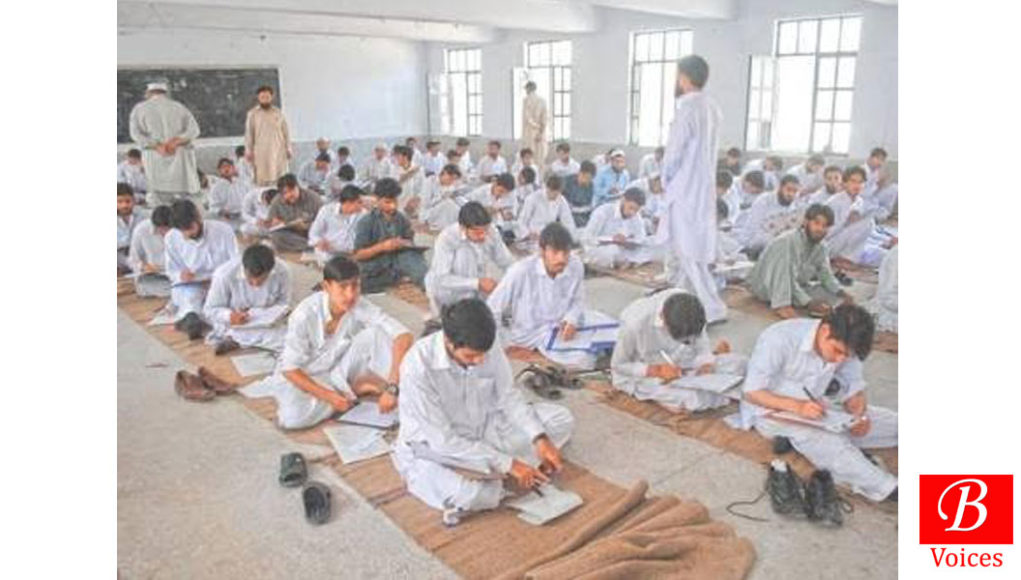 Saddam Shah
Saddam Shah
Low literacy rate and lack of quality education are widely acknowledged fundamental reasons for the underdevelopment of Balochistan besides other worth-considering factors. But having said that, there is a sharp difference between illiteracy and dearth of quality education that affect each other and yet should not be mixed. These have background reasons and consequences and that also need to be understood separately rather mixing of discretely significant aspects.
Years ago, people in the province with traditional mindset did not wish to have government job and that is why didn’t feel necessary to send their children to schools, especially women education was almost missing, to educate them for job or professional career. It was in the absence of quality education and inclination for it, but with the passage of time things have got changed and now people think very different, so now, people care about this.
Socially aware parents in Balochistan not only desire their children educated but even well-educated for a brighter future of them.
Low literacy rate, lowest in the country of Balochistan, is due to historical lack of educational institutions in sufficient number that would cover all the province accordingly and the tendency of people towards sending their children to schools and partly also due to schools and teachers existing in papers, so-called ‘ghost teachers’ but totally absent on-ground and that has been resulting in students quitting from schools or not joining colleges for further studies and thus, literacy rate if has not been stagnant, it has been much slower than needed or desired.
Unprofessional administration of education department for core purpose of education is mainly responsible for lack of quality education that never evaluates the capability of teaching staff and the level of progress, nor explores creative ways of equipping students with updated skills that would benefit them in their practical life which benefits society to overcome its problems. Such gap in long-run results in absence of research, knowing civic and social responsibilities and poor administration of all other sectors that are composed of same youth. And that also results in students who then in their graduation cannot compete at national or international level and thus cannot find place in federal departments. Perhaps, that is why Balochistan’s twelve seats annually in Civil Superior Services cannot even be filled.
When there is low literacy rate, so educated people though having less skills take strong positions in various sectors but remain unable to fulfill their responsibilities assigned to them, which is hurdle for improving quality education and strengthening other institutions, as the present case of the province is. Quality then does not remain a priority but increasing quantity attracts legislating and executive authorities. Whereas, enhancing quality of education can produce a breed that gives valuable solution to raise number of school- and college- going students along with inculcating necessary skills, broadening their understanding and generating opportunities for them to ultimately benefit a society.
There are policies, especially those that are relevant to education, which can never bear efficient outcome in public interest if are being politicized or manipulated for political attraction.
Approving new institutions for higher education is appreciable step of provincial government with the technical assistance of Higher Education Commission that aims to produce talented and skillful youth, who would be working and contributing their potential and professionalism in different sectors, but after all these initiatives, what remains undone is ensuring the quality of students produced by schools and then colleges and doing their career counseling to opt their career from the very first day of graduation instead of uncertainty and confusion, as that is the foremost work to be done.
Provincial government may be sincere in education sector but merely being in good faith is not enough, this is more important sector if is really considered a primary reason of all prevailing odds.
Though recruiting more than four thousand teachers was done through National Testing Service NTS by provincial cabinet last year but were they also trained for their jobs and is there any credible and efficient mechanism to ensure and regulate their performance at schools or is it just like doing a half-task?
The lack of quality education in government schools is evident from the number of private schools and colleges, whose number is though less but not very less and still promoting quality education than those of government institutes. But why large number of students go for government institutes, is not because of its quality rather because their parents cannot afford private schools and colleges expenditures.
After eighteenth amendment, education was included in provincial list by abolishing concurrent list and since then, it is utmost responsibility of units to formulate effective policies for improving this sector. So, what Balochistan has been doing in this regard? Merely increasing budget for it is not the overall solution despite its impacts would obviously take time but what are then its indicators and determinants that public money has been spent for genuine interests of people and that would surely bear efficacious output?
Private institutions in the province, schools, colleges, tuition academies, language centers, computer courses centers and etcetera are contributing lion’s share in promoting quality education in the province that should be encouraged and appreciated with required government regulation.
Students from across the province are learning English in quality language centers, which are much cheaper and well designed. Students from various cities and those living in Quetta do preparation for matric, intermediate and bachelor examinations in tuition academies and in coaching centers for entry test in medical colleges and engineering universities.
Such environment in the capital city has vast impacts on education in other cities and these students after completion of their education and those short courses take this learning to their hometowns and try to promote such learning culture there too, and that is very positive impact of these private institutes.
In this prevailing system, neither private institutions can be shut down nor government can depend on these completely, rather a mixed approach is being used without unambiguous vision. The money, used for government institutions is tax paid by the public, should be used for their well-being in a very economical and result-oriented way rather utilizing it with a vision of being in power.
Private sector is not substitute for whole public of Balochistan, rather should be taken as mere little gap-filler, which is unfortunately not now.
Non-Government Organizations are also working on education in the province, in which some of the organizations are doing great job while others do earn enough money in this professional business. Again, the same obstacle, who should regulate, monitor and evaluate their performance? Probably, no one is given this significant job.
Whatever the administrative division of the province is, with five percent of population but forty-three percent of territory, spending money in bulk is never a full task, rather ensuring the use of that finance and achievement of its desired and expected objectives must also be taken into consideration and for that we really need innovative ideas of management and administration according to the realities of Balochistan, considering all the factors from social to demographical.
Accessing authentic data from government institutions in Balochistan is very challenging and even if someone gets that, it seems incomplete and unprofessional. So, to have strong and capable monitoring, evaluating and regulatory bodies within the education sector that would be doing quantitative research work and then publish it, so that, educationists in the province do some qualitative work and inquire the gaps, government needs to fill, and that is a much-required work.
Improving standard of education is not over-night change, but the improvement process must be at least observable, so that, people may evaluate the pace of our sustainable development.








